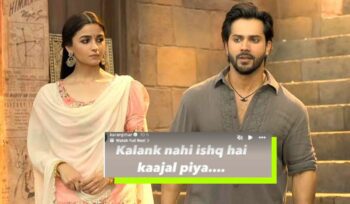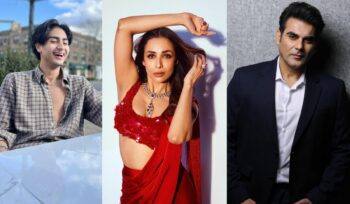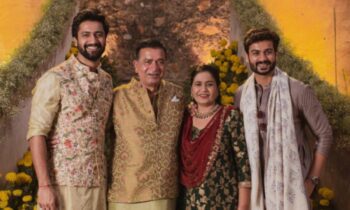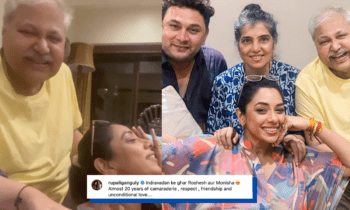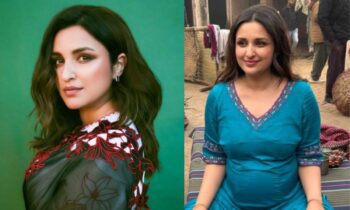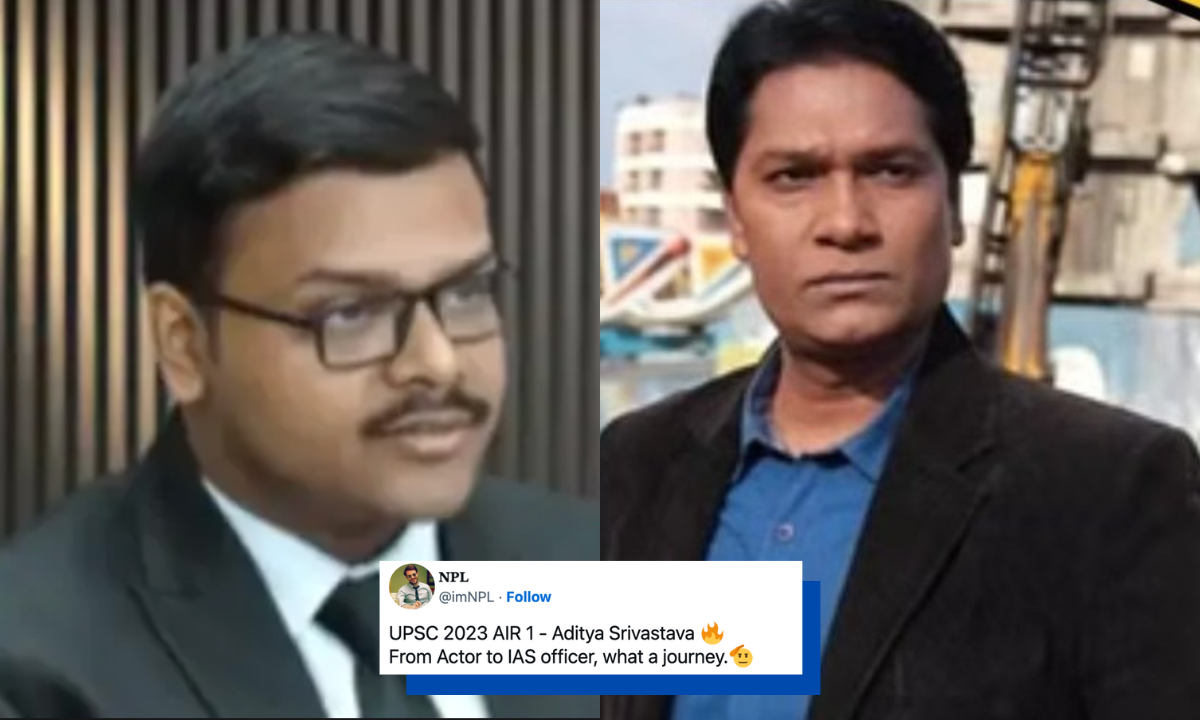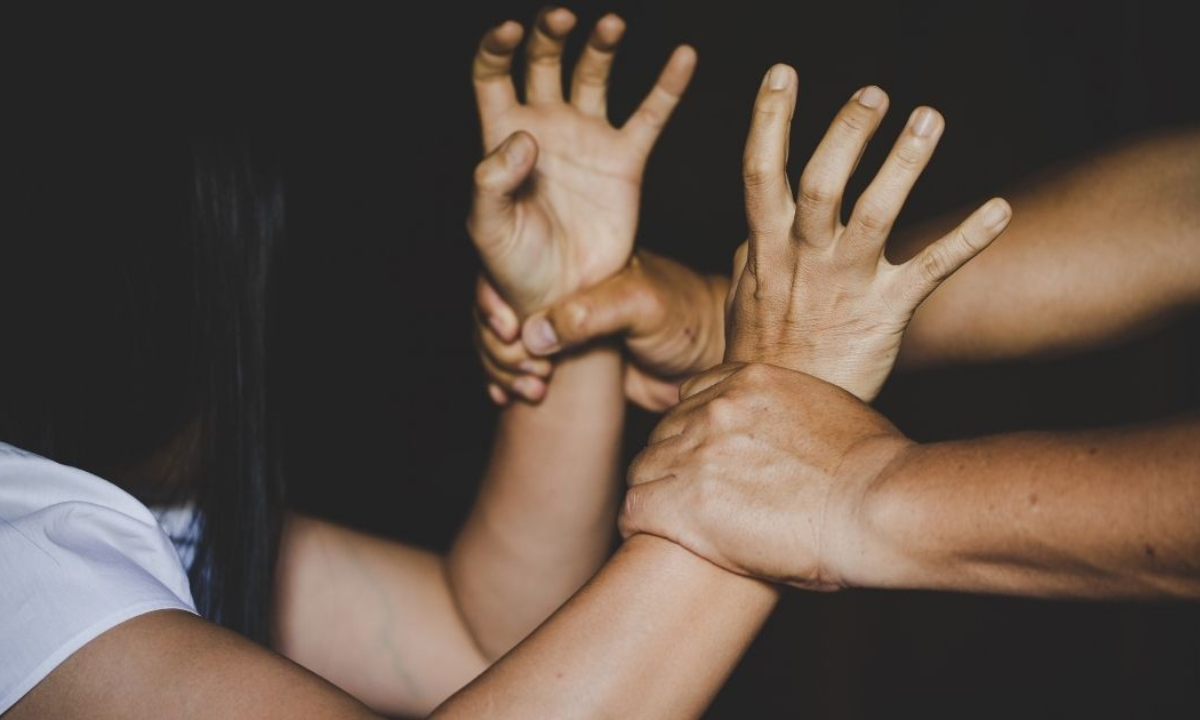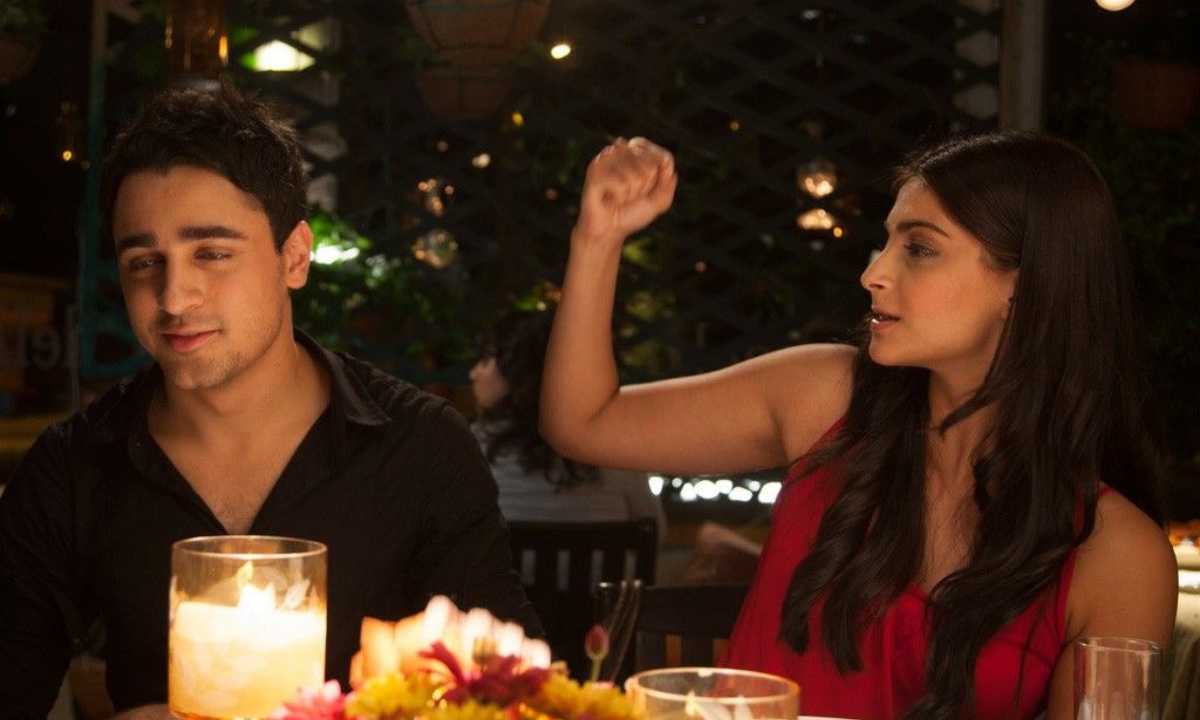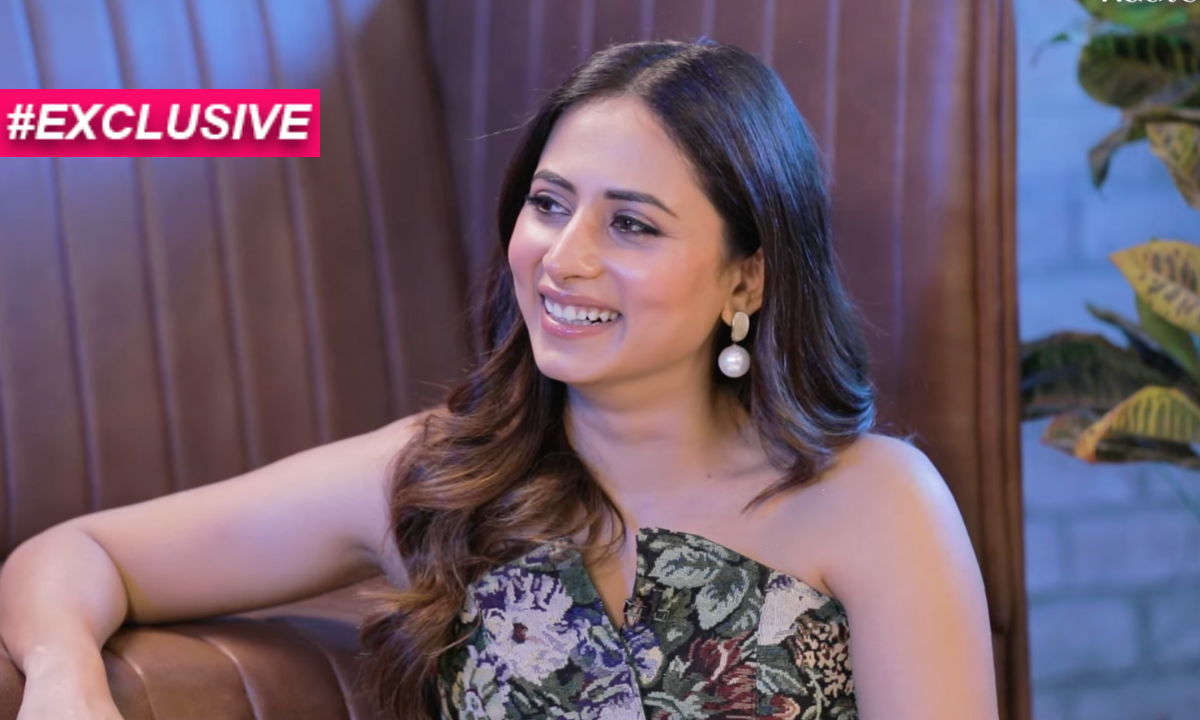A Woman On Twitter Said Wearing Hijab Is An Evil Practice, Not A Choice. Millennial Muslim Women Think It’s A Choice Most Women Don’t Get To Make
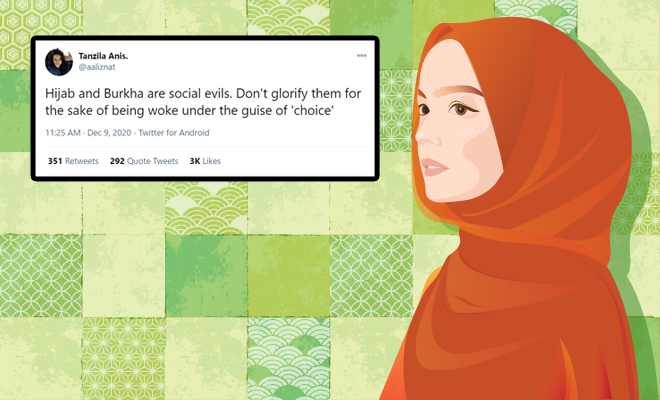
When it comes to controversial religious customs, hijab and purdah remain the most heated conversational topics. The head covering or veil worn by Muslim women is often viewed as a symbol of cultural and social obligation for women in the Islamic community, while the people of faith see it as their religious duty and a path to become a better Muslim and human being. Most Muslim women I know don’t wear a hijab out of choice but there are women on whom this practice is imposed at an early age, even before they can articulate its significance. And, that is problematic.
Keeping women in purdah (head-to-toe in burkha and head and chest covered in a hijab) is an age-old tradition that most women don’t conform to anymore while some opt to veil to express their religious identity. However, every time the topic of wearing a hijab or burkha by Muslim women is touched upon, there is conflict of opinions and the practise is called a sign of oppression, patriarchy and religious dictatorship.
Recently, a woman on Twitter expressed her POV about women wearing hijab, citing it a social evil and not a choice. She wrote, “Hijab and Burkha are social evils. Don’t glorify them for the sake of being woke under the guise of ‘choice’.” In a subsequent tweet, she wrote, “Growing up I’ve seen far too many women in India and around me coerced and cajoled into ‘accepting’ a hijab, chadar or burkha. So I’m sorry if your sensibilities are hurt about your poor little patriarchal choice. Make a better choice.”
Hijab and Burkha are social evils. Don’t glorify them for the sake of being woke under the guise of ‘choice’
— Tanzila Anis. (@aaliznat) December 9, 2020
But here’s the thing. We talked to 5 Indian Muslim women and they think that it is, in fact, a choice which sadly, most women don’t get to make in several cultures and countries, including India. These modern women don’t think that hijab is an expression of their identity as a good Muslim. However, they stress on the fact that at the end of the day, it’s a woman’s choice whether or not she chooses to wear the hijab. Here is what the millennial Muslim women in India think about the practice of wearing a hijab and burqa.
Also Read: Hijabi Model Halima Aden Quits The Fashion Industry, Unveils The Truth About Inclusivity And Diversity In Fashion
“Hijaab ki baat karne se pehle, mask toh thik se pehen lo! One thing I have learned from COVID-19 is that we can’t even wear a mask properly; imagine women living fully covered all their lives! As a millennial Muslim woman living in India, it’s sad to see that in a free country, its women are not free to make a choice of their own whether or not to wear a hijab/burkha. But, strangely enough, no one thinks it’s important for the woman to have the final word. What you choose to wear does not define how progressive or backward you are!”
–Fatema Habib, Copy Writer, Mumbai
“I believe that wearing a hijab/burkha is both a choice and a patriarchal social practice. I know some women who wear it out of choice. No one else in their family does but they someday decided that they would want to wear one. I also know some families where the girls don’t even understand the meaning of it but are asked to wear it from a very young age. The percentage of the latter is definitely higher. I also think that in some families it’s the pressure of the community also; people feel that they might be outcast from the community if their women don’t wear it.
As a Muslim woman, I think that we shouldn’t “ask” anyone to wear it; it would be better if we let our girls read about the religion and then let them decide if they would want to wear it.
–Aina Ali, Assistant Manager Copyediting, Dehradun
In Quran it’s written that a woman should be covered from head to toe. There shouldn’t be even little bit of skin visible. It’s kind of a weird law, but some people do practice this while other (like me and my family) don’t. So, I really think it’s a choice. If you want to do it then do it, otherwise don’t. And sometimes those choices are passed down to other generations who accept it at a young age.
–Sama Meerza, Social Media Executive, Mumbai
Hijab is not only purdah it is practising modesty and humility in everything you do on a daily basis. I have been doing Hijab for more than 5 years now but trust me I am also not doing it the way it should be. Hijab is a philosophy that ensures both gender get equal footing in terms of their personality and both should not transgress each other’s privacy or rights. It is not the headscarf or head covering… It is not a mere cloth. In Islam and some other Abrahamic religions, hijab is for both men and women equally. Men are told to lower their gazes as a sign of reverence to the opposite gender and not letch or just see women with lewd gaze. Men are told to not trespass/transgress the privacy of women and not see them as an object that is reduced to a mere sexual need. So, headscarf is not the definition of hijab but just a small external extension of a bigger philosophy. Also, hijab is not only for Muslimah but also for the Muslim men. The purdah of your eyes and voice is what needs to be practised in Islam.
Talking about whether this is oppressive or not, a woman wearing bikini and another wearing a headscarf, both have their choice of choosing and cannot be reduced to what they wear. Both women have intellect beyond just the way they dress. A piece of cloth cannot be liberating at the cost of other being oppressive.
–Sehar Siddiqui, Blogger, PR and Communication Coordinator, Pune
I am not surprised that such a tweet is being discussed online because people think wearing Hijab means suppressing a Muslim woman’s right. That’s not true. I come from a family where wearing hijab is optional, I never wore one, so for the most part of my growing up years I too saw it as a sign of repression. But as I met more people with different thought processes, I learned it’s wrong to judge humans on the way they prefer to dress.
I wouldn’t tell one of my gay friends to not wear makeup or dress in a way that society expects them to, because dressing is a personal choice. Similarly, a lot of modern Muslim women I know do it out of their own free will and not because they’re forced. It’s high time we stopped looking at someone’s choice of clothes as social evils.
–Sanya Hamdani, Content Writer, Mumbai
It all comes down to one thing. To veil or not to veil is upon every individual woman and calling it an evil practice is highly insensitive and offensive to those who wear it by choice and identify it with their faith. And not very feminist, TBH. We need to understand that wearing hijab and burqa isn’t the evil practice here but forcing a woman to adhere to the purdah system is. When it comes to hijab and burqa, there is a thin line between self-expression and oppression, and that is ‘choice’.







